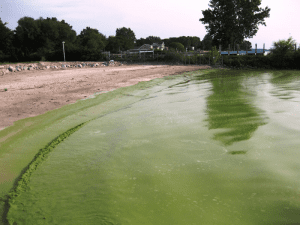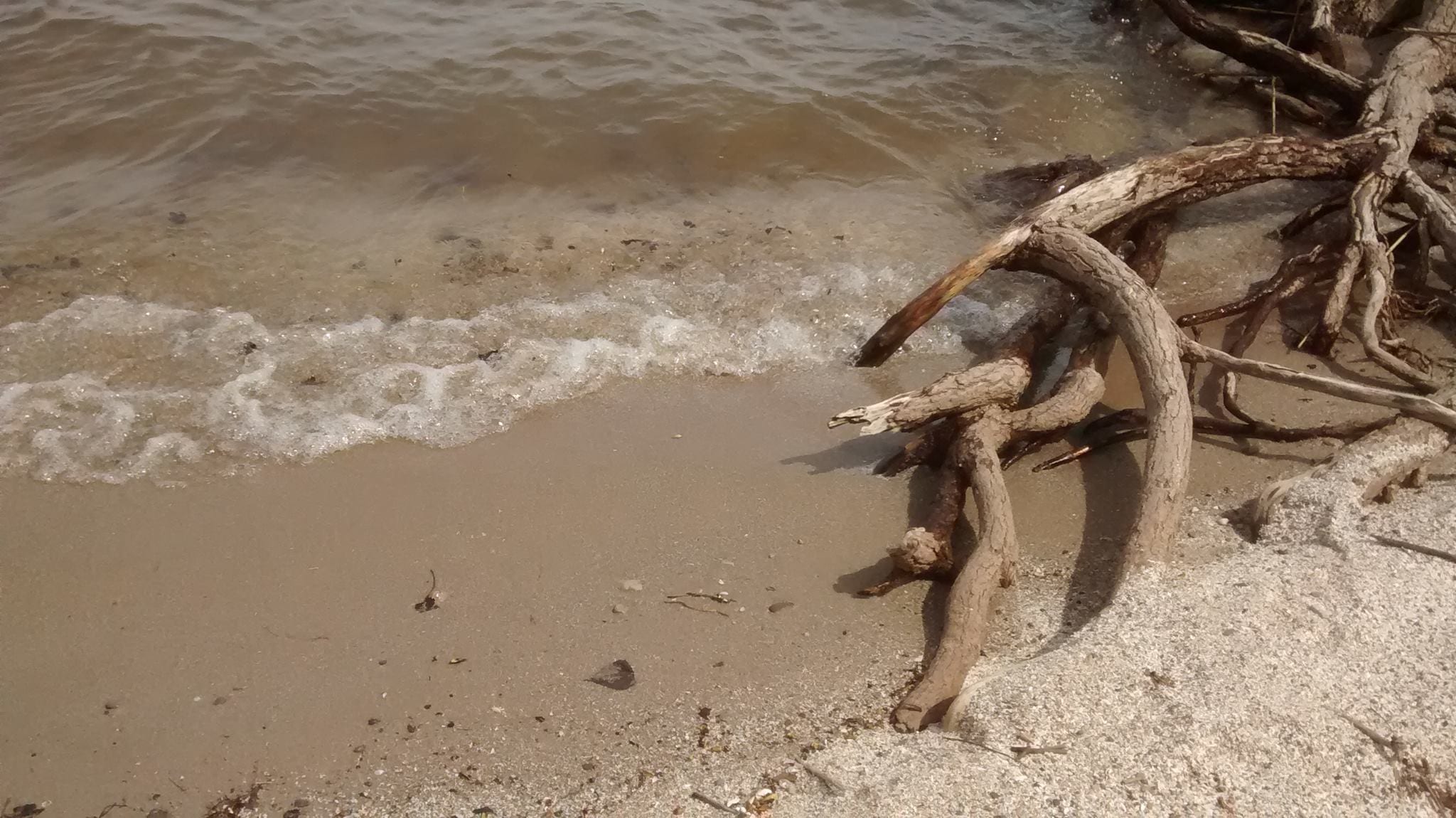Toledo voters recently passed the Lake Erie Bill of Rights, providing strong protection and personhood status for the world’s 11th largest lake. Will it stand against legal challenges from farmers resistant to change?
In 1967, Lake Erie was dead. Runoff and industrial pollutants from Rust Belt farms and factories choked the life out of the world’s 11th largest lake. Dead fish washed ashore. The situation was so awful that the Cuyahoga River, which feeds into Lake Erie near Cleveland, Ohio, caught fire on several occasions. The 1969 fire wasn’t even the worst, but it had the largest overall effect by sparking the modern environmental movement. Since then, the 1972 Clean Water Act (and, interestingly, invasive zebra mussels and deindustrialization) led to significant improvement of the water’s health, but it’s still not enough. Lake Erie still regularly plays host to toxic algae blooms and a late summer dead zone. That’s a big reason why (9% of) voters in Toledo, Ohio, turned out to approve a Lake Erie Bill of Rights by a 61-to-39% margin in a special vote on February 26th.
Libertarians argue that property rights are the solution to pollution. Their reasoning goes something like this: as it stands, the government isn’t great at preventing the fouling of the environment. However, if nature is privatized, allowing firms to own our rivers, atmosphere, and other natural resources would do a better job. For instance, agricultural runoff damaging Lake Erie would be a violation of some corporation’s private property rights, and they would fight to keep it clean so they could keep earning money from the lake’s resources. But would it work? Quite often, firms actually benefit from the destruction of our natural resources, such as clearcutting forests (instead of managing them sustainably), overfishing, or allowing industrial pollution to flow away into the air or water rather than responsibly disposing of it. Private property is no guarantee of decent stewardship if there’s profit to be made from destruction.
The efforts that led to the Lake Erie Bill of Rights, however, recognize that property rights are effective if the property “owns” itself. Businesses might find it cheaper to buy rights to pollute a lake than to innovate some way to not pollute at all, and then there’s little recourse. What if it were possible to consult the lake itself, though? Would it want to become an industrial cesspit for someone else’s profit and convenience? Or would it rather thrive, as a complex ecosystem filled with life? What sort of lake would a fish prefer to swim in? The choice, like the lake, should be clear. Unfortunately, lakes can’t file suit in a court of law, so concerned citizens have to step in, much like we appoint guardians to defend the interests of minors.

When a group of Ohioans sat in a pub, discussing Lake Erie’s algae blooms and wondering if there were some way that the lake could legally protect itself, there was already precedent for granting personhood rights to non-human entities. After all, chartered municipalities and corporations themselves are legal “people” and have been for centuries, cared for by human guardians. New Zealand and India have granted legal personhood to rivers. And just last year, the White Earth band of Ojibwe in Minnesota passed a law recognizing the legal rights of wild rice, or Manoomin, to clean water, a healthy environment to grow in, and a stable climate. Does Lake Erie, the source of drinking water for 11 to 12 million people, deserve less?
Of course, almost immediately, a group of farmers commenced legal action challenging the Lake Erie Bill of Rights legislation, claiming it violates their Constitutional rights and that they’d have to radically change the way they farm. (Yes, we’d all have to do things very differently if protecting the natural environment we depend upon for life ever becomes important.) This lawsuit, however, implies that the rights of farmers (whose nitrogen runoff causes dead zones and algae blooms) to continue business as usual is more important than avoiding the kind of pollution that regularly robs Toledo of potable drinking water and which famously closed or severely restricted businesses there in 2014. Hospitals had to cancel surgeries because they couldn’t sterilize their equipment in the fouled water. If plaintiffs want to claim that this law is anti-business, they need to explain that to the businesses that depend on clean Lake Erie water.
Unfortunately, the Lake Erie Bill of Rights may well be unconstitutional. The people of the city of Toledo don’t have authority over the whole lake, which spans almost a thousand square miles covering several jurisdictions. It’s also true that without strong protection, the lake will continue to suffer the abuses dealt by industrial civilization, with its huge population of enthusiastic consumers and high levels of polluting waste. It’s sad when the Constitution, designed to protect our rights and general well-being, becomes a suicide pact.
Related: Corn, Water, & Big Ag’s Immunity Problem
Sources:
Legal Rights for Lake Erie? Voters in Ohio City Will Decide
Lake Erie just won the same legal rights as people
Lake Erie Bill of Rights gets approval from Toledo voters
Farmers sue to stop measure giving Lake Erie legal rights
Rivers Get Human Rights: They Can Sue to Protect Themselves
The White Earth Band of Ojibwe Legally Recognized the Rights of Wild Rice. Here’s Why
The Libertarian Manifesto on Pollution
#OurLegacy: The near-death of Lake Erie and its uncertain future


Join the conversation!